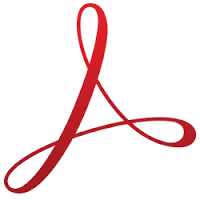Description

CryptoBind Data Security

eSignly
Comprehensive Overview: CryptoBind Data Security vs eSignly
As of my last update in October 2023, there was limited specific information available about products called "CryptoBind Data Security" and "eSignly." However, I can provide an overview based on the general context of data security products and e-signature solutions, which are sectors these product names suggest they belong to.
a) Primary Functions and Target Markets
CryptoBind Data Security
Primary Functions:
- Data Encryption: Providing secure encryption methods to protect data both at rest and in transit.
- Access Control: Implementing measures to ensure that only authorized users can access sensitive data.
- Data Integrity: Ensuring the integrity of data by preventing unauthorized alterations.
- Compliance: Helping organizations comply with data protection regulations like GDPR, HIPAA, etc.
Target Markets:
- Financial Services: Banks and financial institutions that require robust security measures for sensitive financial data.
- Healthcare: Organizations needing to protect patient information and comply with regulations.
- Enterprise: Large businesses looking to secure proprietary data from breaches and leaks.
eSignly
Primary Functions:
- Electronic Signatures: Enabling users to sign documents electronically in a secure manner.
- Document Management: Streamlining the workflow of document storage, retrieval, and sharing.
- Legal Compliance: Ensuring that electronic signatures are legally binding and compliant with relevant laws like the eIDAS Regulation, the ESIGN Act, and UETA.
Target Markets:
- Real Estate: Facilitating the quick exchange of contracts and agreements.
- Legal: Law firms and legal departments managing multiple contracts and agreements.
- Small to Medium Enterprises (SMEs): Companies seeking efficient, paperless document workflows.
b) Market Share and User Base
It's challenging to provide an exact comparison of market share and user base without specific data. Generally:
-
Data Security Market: The market for data security solutions is highly competitive, with major players like Symantec, McAfee, and Trend Micro dominating the space. Niche products like "CryptoBind Data Security" might focus on specific industries or features to gain a foothold.
-
e-Signature Market: Dominated by established solutions like DocuSign, Adobe Sign, and HelloSign. eSignly would be competing for market share by targeting niche markets or offering unique features at competitive pricing.
c) Key Differentiating Factors
CryptoBind Data Security
- Innovative Encryption Techniques: May utilize cutting-edge technology like quantum encryption.
- Industry-Specific Solutions: Tailored features that address the unique needs of specific industries.
- Scalability: Offering flexible solutions that can grow with a business.
eSignly
- User Experience: Intuitive interface that enhances the user experience.
- Integration Capabilities: Ability to seamlessly integrate with other software systems used by businesses.
- Cost-Effectiveness: Competitive pricing strategy, making it an attractive option for SMEs.
Conclusion
Without specific data on these products, the insights provided are based on typical features and market dynamics within the data security and e-signature sectors. For more detailed and up-to-date information, consulting recent market reports or the companies' websites would be necessary.
Contact Info

Year founded :
Not Available
Not Available
Not Available
Not Available
Not Available

Year founded :
2011
+1 908-460-1084
Not Available
United States
http://www.linkedin.com/company/esignly
Feature Similarity Breakdown: CryptoBind Data Security, eSignly
To provide a feature similarity breakdown for CryptoBind Data Security and eSignly, let's consider the general offerings of data security solutions and electronic signature platforms. However, specific details might vary based on the most recent versions and updates of these products, which I don't have access to. Here’s a general overview based on typical features of similar products:
a) Core Features in Common
-
Security Protocols:
- Both likely use advanced encryption standards to protect data, ensuring the privacy and security of sensitive information.
-
Compliance:
- They probably comply with industry standards and regulations like GDPR, HIPAA, and others relevant to data protection and e-signatures.
-
User Authentication:
- Have mechanisms for verifying user identity to ensure that access is limited to authorized personnel only.
-
Cloud Integration:
- Offer cloud-based services, allowing users to access features remotely and securely from various devices.
-
Audit Trails:
- Maintain detailed logs of user activity, helping in tracking changes and verifying the authenticity of actions taken within the platform.
b) User Interface Comparison
-
CryptoBind Data Security:
- Likely focused on a dashboard that emphasizes data encryption metrics, security alerts, and compliance reports. The UI might include complex options and configurations suited for IT professionals and security experts.
-
eSignly:
- Typically focuses on simplicity and ease of use, with a clean, intuitive interface that guides users through the electronic signing process. It usually prioritizes accessibility for users who may not have a technical background, offering features like drag and drop for document uploads.
c) Unique Features
-
CryptoBind Data Security:
- Advanced Threat Intelligence: Might include features for detecting and analyzing suspicious activities or potential data breaches before they occur.
- Integration with IT Security Tools: Potentially offers seamless integration with existing IT infrastructure for enhanced security management.
- Data Loss Prevention (DLP): Possibly monitors and protects data from unauthorized access or leaks.
-
eSignly:
- Templates and Branding: Likely offers customizable templates and branding options for documents, making it easier to maintain consistency and professionalism in communications.
- Mobile Signing: Strong focus on mobile user experience, allowing documents to be signed from any device efficiently.
- Workflow Automation: Possibly supports automated workflows to streamline the signing process, reducing administrative overhead.
These general comparisons give an overview of what might differentiate these platforms based on typical product offerings in their respective markets. For precise and up-to-date details, visiting the official websites or contacting sales and customer support of CryptoBind Data Security and eSignly would provide more specific information.
Features

Not Available

Not Available
Best Fit Use Cases: CryptoBind Data Security, eSignly
Certainly! Let's explore the best fit use cases for CryptoBind Data Security and eSignly, focusing on the types of businesses or projects they are ideal for, the scenarios best suited for each product, and how they cater to different industry verticals or company sizes.
CryptoBind Data Security
a) Best Fit for Businesses or Projects
- Finance and Banking: Given the high sensitivity and regulatory requirements of financial data, CryptoBind is ideal for securing transactions and safeguarding client information.
- Healthcare: With its ability to protect sensitive health records and comply with health data privacy standards (like HIPAA in the U.S.), healthcare providers can benefit enormously.
- Legal Firms: Law firms handling confidential client agreements and documents can use CryptoBind to ensure client confidentiality.
- Technology and SaaS Companies: Companies in technology sectors, particularly those that deal with user data, can use CryptoBind for enhanced data protection and compliance with data privacy laws.
- E-commerce and Retail: To protect customer data during transactions and ensure both customer privacy and regulatory compliance, CryptoBind is a valuable tool.
b) Scenarios for eSignly
- Remote Workflows: Companies with remote teams and digital processes benefit from seamless, secure signing of documents, ensuring timely agreements without physical meetings.
- Sales and Real Estate Transactions: For fast and secure contract signings to speed up sales cycles and real estate deals.
- Human Resources: For onboarding employees with essential documents, where signatures are required to be collected quickly and securely.
- Legal Documentation: Legal processes requiring legally-binding digital signatures, making it easy to manage contracts and agreements across locations.
- Small and Medium Enterprises (SMEs): For SMEs needing a cost-effective and efficient solution to handle contracts, NDAs, and other agreements digitally.
Catering to Different Industry Verticals and Company Sizes
-
Industry Verticals:
- Regulated Industries (Finance, Healthcare, Pharmaceuticals): Both products cater to their specific needs, with CryptoBind providing robust data protection and eSignly facilitating secure document workflow processes.
- Service-Oriented Industries: Such as real estate, legal, and consulting, where eSignly ensures efficient contract management and CryptoBind secures sensitive client interactions.
- Tech and Digital Products: Suitable for tech companies focused on cybersecurity and data protection (CryptoBind) and those looking for frictionless document management and collaboration tools (eSignly).
-
Company Sizes:
- Small Businesses: They can use these tools for straightforward, budget-friendly digital transformations—eSignly provides affordable solutions for document management, while CryptoBind offers scalable security features.
- Medium to Large Enterprises: Larger companies across sectors can leverage these tools for comprehensive data security (CryptoBind) and streamlined document processes (eSignly) to maintain regulatory compliance and operational efficiency.
- Startups: Startups particularly in fintech, health tech, and digital services can use these solutions to ensure robust security measures and agile response to document handling requirements.
Overall, CryptoBind Data Security and eSignly serve to meet the burgeoning needs for security and efficiency in document and data management across various business landscapes, providing tailored solutions suitable for a wide array of industry requirements and company sizes.
Pricing

Pricing Not Available

Pricing Not Available
Metrics History
Metrics History
Comparing teamSize across companies
Conclusion & Final Verdict: CryptoBind Data Security vs eSignly
To provide a comprehensive conclusion and final verdict on CryptoBind Data Security and eSignly, let's analyze both products based on the specified criteria:
a) Best Overall Value:
Determining Overall Value:
- CryptoBind Data Security: This product is designed for robust data protection, offering advanced encryption methods and comprehensive security protocols, which are essential for businesses handling sensitive data. Its strength lies in maintaining data confidentiality and preventing unauthorized access.
- eSignly: This service is focused on providing efficient, secure, and legally binding electronic signature solutions. It is ideal for businesses looking to streamline their document signing processes while ensuring compliance with digital signature regulations.
Verdict: The best overall value depends on the primary need of the user. If the need is data security, CryptoBind offers better value. If the focus is on efficient digital signing, eSignly is more valuable.
b) Pros and Cons:
CryptoBind Data Security:
- Pros:
- High-level data encryption and security protocols.
- Suitable for organizations needing strict data protection measures.
- May offer features like secure file storage and transfer.
- Cons:
- Potentially higher costs due to advanced security features.
- May require technical expertise to manage and integrate with existing systems.
- Can be overkill for businesses not primarily concerned with data security.
eSignly:
- Pros:
- Streamlines document signing processes, saving time and reducing paperwork.
- Ensures compliance with legal standards for e-signatures.
- User-friendly interface and easier integration with existing business workflows.
- Cons:
- Primarily focuses on signature functionality, lacking in broader data security features.
- May not be suitable for businesses needing beyond basic document signing.
- Subscription costs could add up based on usage and number of users.
c) Recommendations:
Recommendations for Users:
-
Assess Needs: Users need to prioritize their requirements. If data security is crucial, opting for CryptoBind is advisable. For organizations where digital transaction validity and simplicity are paramount, eSignly is the way to go.
-
Budget and Resources: Consider budget constraints and technical resources. CryptoBind may involve higher costs and require dedicated technical support, whereas eSignly might fit better with limited budgets and existing IT infrastructure.
-
Scalability and Expansion: Evaluate which service aligns better with future needs. Organizations anticipating growth in their need for data protection or expecting high volumes of digital transactions should consider how each product scales.
-
Compliance and Regulation: Understand industry-specific compliance requirements. Choose the product that best aligns with necessary legal frameworks, whether in data security or electronic documentation.
In conclusion, the decision between CryptoBind Data Security and eSignly hinges on the user's primary focus—data protection versus digital transaction efficiency. Each product brings unique strengths and addresses different aspects of data management and transactions, so selecting the best fit requires careful consideration of the business's core needs and future objectives.
Add to compare
Add similar companies



